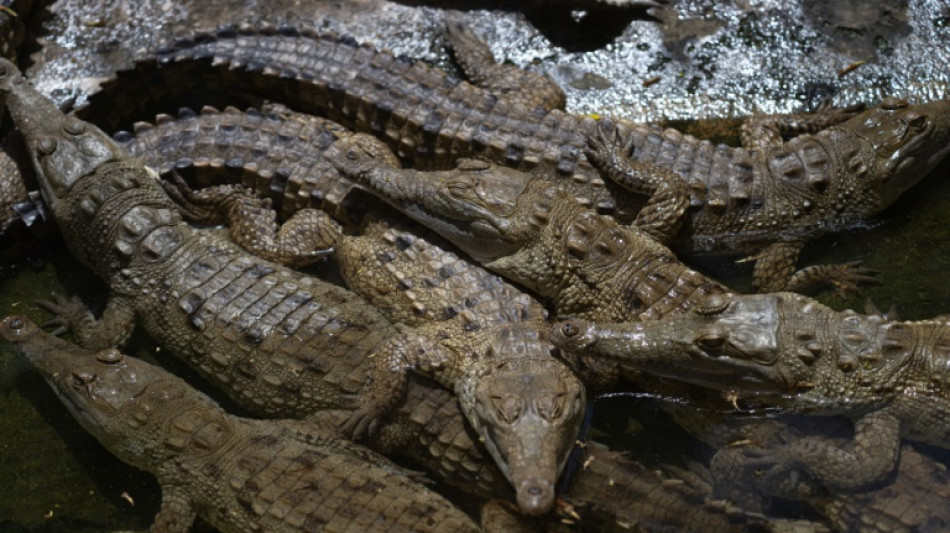
-
 Milan menswear shows add bling with brooches
Milan menswear shows add bling with brooches
-
Scotland recall Gray, Cherry for Six Nations

-
 Scheib storms to Kronplatz giant slalom victory as Brignone impresses in World Cup return
Scheib storms to Kronplatz giant slalom victory as Brignone impresses in World Cup return
-
Chagos Islands: international dispute and human drama

-
 Thousands of farmers protest EU, Mercosur trade deal ahead of vote
Thousands of farmers protest EU, Mercosur trade deal ahead of vote
-
Men's Fashion Week kicks off in Paris with tributes for Valentino
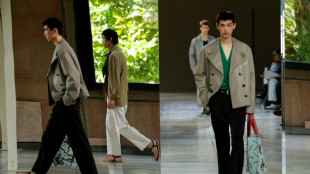
-
 Lake named as captain as Wales unveil Six Nations squad
Lake named as captain as Wales unveil Six Nations squad
-
Royals visit deadly train crash site as Spain mourns
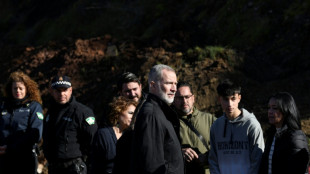
-
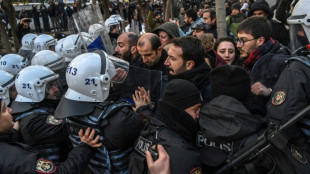 Police, pro-Kurd protesters clash at Turkey border with Syria
Police, pro-Kurd protesters clash at Turkey border with Syria
-
Thai forces razed Cambodian homes on border: rights group
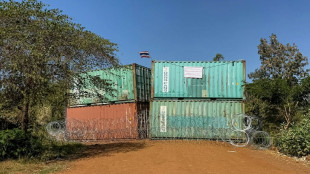
-
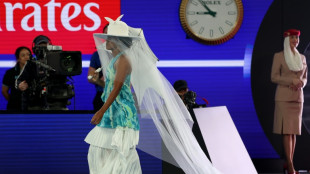 Jellyfish-inspired Osaka battles into Australian Open round two
Jellyfish-inspired Osaka battles into Australian Open round two
-
Valentino taught us to respect women, says partner

-
 Australia stiffens hate crime, gun laws after Bondi attack
Australia stiffens hate crime, gun laws after Bondi attack
-
Mercedes chief designer Owen to leave F1 team

-
 Trump unloads on allies as Davos showdown looms
Trump unloads on allies as Davos showdown looms
-
Moscow revels in Trump's Greenland plans but keeps concerns quiet
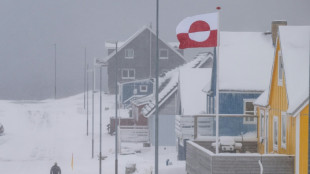
-
 Global tourism hit new record level in 2025: UN
Global tourism hit new record level in 2025: UN
-
Senegal poised to party with parade honouring AFCON champs

-
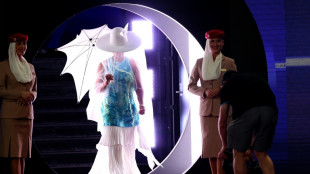 Osaka emerges for Melbourne opener under hat, veil and parasol
Osaka emerges for Melbourne opener under hat, veil and parasol
-
Dogsled diplomacy in Greenland proves elusive for US
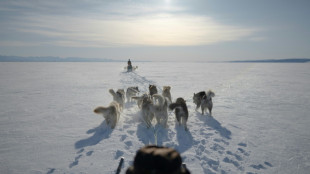
-
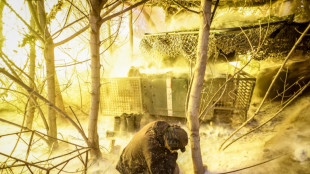 Almost half of Kyiv without heat, power, after Russian attack
Almost half of Kyiv without heat, power, after Russian attack
-
EU vows 'unflinching' response to Trump's Greenland gambit

-
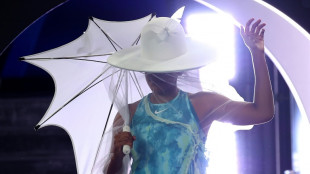 Osaka steals show at Australian Open as Sinner strolls through
Osaka steals show at Australian Open as Sinner strolls through
-
Brignone impresses in first run of Kronplatz giant slalom in World Cup comeback

-
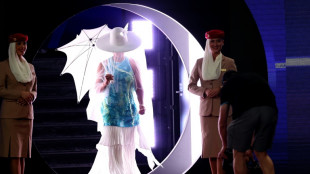 Osaka emerges for Melbourne opener under white hat and umbrella
Osaka emerges for Melbourne opener under white hat and umbrella
-
Malawi suffers as US aid cuts cripple healthcare

-
 Bessent says Europe dumping US debt over Greenland would 'defy logic'
Bessent says Europe dumping US debt over Greenland would 'defy logic'
-
Freeze, please! China's winter swimmers take the plunge
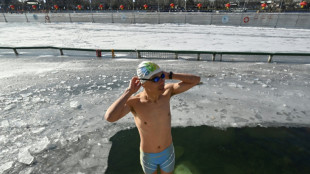
-
 Talks between Damascus, Kurdish-led forces 'collapse': Kurdish official to AFP
Talks between Damascus, Kurdish-led forces 'collapse': Kurdish official to AFP
-
In-form Bencic makes light work of Boulter at Australian Open
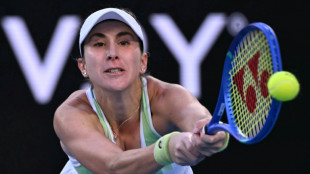
-
 Spain mourns as train disaster toll rises to 41
Spain mourns as train disaster toll rises to 41
-
Sinner into Melbourne round two as opponent retires hurt

-
 Israel begins demolitions at UNRWA headquarters in east Jerusalem
Israel begins demolitions at UNRWA headquarters in east Jerusalem
-
Almost half of Kyiv without heat, power, after Russian attack: govt
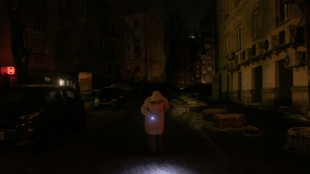
-
 Veteran Monfils exits to standing ovation on Australian Open farewell
Veteran Monfils exits to standing ovation on Australian Open farewell
-
Precision-serving former finalist Rybakina powers on in Melbourne

-
 South Korea's women footballers threaten boycott over conditions
South Korea's women footballers threaten boycott over conditions
-
Equities sink, gold and silver hit records as Greenland fears mount
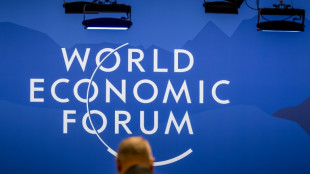
-
 Australian lawmakers back stricter gun, hate crime laws
Australian lawmakers back stricter gun, hate crime laws
-
EU wants to keep Chinese suppliers out of critical infrastructure

-
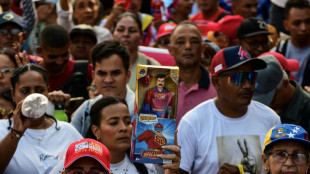 AI reshaping the battle over the narrative of Maduro's US capture
AI reshaping the battle over the narrative of Maduro's US capture
-
Penguins bring forward breeding season as Antarctica warms: study
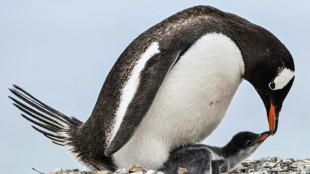
-
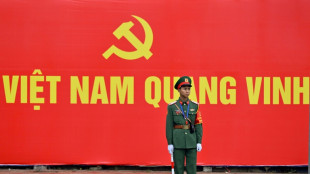 Vietnam leader pledges graft fight as he eyes China-style powers
Vietnam leader pledges graft fight as he eyes China-style powers
-
Ukrainian makes soldier dad's 'dream come true' at Australian Open
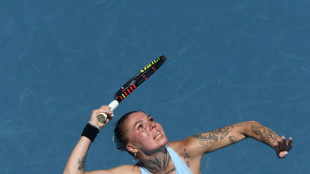
-
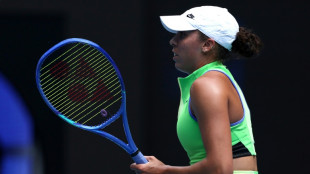 'Timid' Keys makes shaky start to Australian Open title defence
'Timid' Keys makes shaky start to Australian Open title defence
-
Indiana crowned college champions to complete fairytale season

-
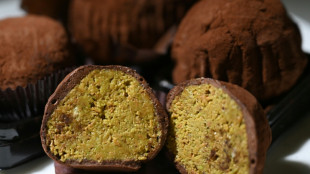 South Koreans go cuckoo for 'Dubai-style' cookies
South Koreans go cuckoo for 'Dubai-style' cookies
-
Harris leads Pistons past Celtics in thriller; Thunder bounce back
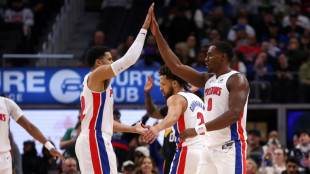
-
 Tjen first Indonesian to win at Australian Open in 28 years
Tjen first Indonesian to win at Australian Open in 28 years
-
Long-delayed decision due on Chinese mega-embassy in London

| SCS | 0.12% | 16.14 | $ | |
| RIO | -0.45% | 84.755 | $ | |
| NGG | -0.77% | 80.27 | $ | |
| GSK | -0.85% | 47.82 | $ | |
| VOD | 0.22% | 13.5 | $ | |
| RYCEF | 0.12% | 17.05 | $ | |
| BTI | -2.37% | 56.87 | $ | |
| AZN | -5.37% | 89.615 | $ | |
| CMSC | -0.3% | 23.48 | $ | |
| RBGPF | -1.87% | 82.5 | $ | |
| BCE | 0.04% | 24.15 | $ | |
| JRI | 0.07% | 13.69 | $ | |
| CMSD | -0.29% | 23.85 | $ | |
| RELX | -3.05% | 40.39 | $ | |
| BCC | -2.25% | 83.66 | $ | |
| BP | -0.03% | 35.375 | $ |

Fighting to save Venezuela's Orinoco Crocodile
Venezuela's Orinoco Crocodile is a fearsome beast, but its enormous size and sharp teeth were no match for humans who hunted them to the brink of extinction.
Millions were slaughtered in the 20th century, mainly for their skins, and today, only about 100 adult females are left in Venezuela, according to the country's Fudeci natural sciences foundation.
Known to scientists as Crocodylus intermedius, the enormous reptile is native to the Orinoco basin that Venezuela shares with Colombia.
It can grow to more than six meters (19.7 feet) in length and over 400 kilograms (882 pounds), making it one of the largest crocodiles in the world.
According to the International Union for Conservation of Nature, it is critically endangered, having suffered an 80-percent population reduction in just three generations in the early and mid-1900s.
More than 2.5 million Orinoco Crocodile skins were exported from Venezuela from 1931 to 1934, according to official Venezuelan figures.
Today, such trade is prohibited but the threat persists: the crocs are killed for their eggs and meat, and sometimes out of fear. And their habitat is ever shrinking and defiled by pollution.
Efforts that started in 1990 to breed new crocs in captivity have seen some 10,000 freed back into the Venezuelan wild.
But their numbers have not significantly increased.
"We do a part... to raise the animals and then release them, but after that it no longer depends on us, there has to be protection of these animals, surveillance, control, there has to be environmental education," conservationist Federico Pantin told AFP.
Pantin, 56, manages the Leslie Pantin breeding zoo -- named after his father who founded it -- with his wife Tuenade Hernandez in the northern state of Aragua. It is one of several croc breeding centers in the country.
- 'Seeds of conservation' -
On Sunday, Pantin was on hand for the release of 160 hatchlings -- small and green-skinned with black spots and light eyes -- into the Capanaparo River.
The zoo's captive breeding pair produces about 40 eggs at a time.
The eggs are incubated for about 90 days in very specific conditions, buried in sand at a depth of 33 centimeters, at a temperature of between 30 and 34 degrees Celsius (86-93 degrees Fahrenheit) and humidity of 85-90 percent.
The crocodiles mostly hatch in May, and at about one year of age, they are freed.
Zoo staff also capture free-born baby crocs in the river to raise them in relative safety.
"Predation in the natural environment is very high" with birds, fish and other reptiles all feeding on the defenseless hatchlings, explained Pantin.
By raising them at the zoo, 95 percent of the hatchlings survive -- whereas most would have died in their natural environment.
"The animals arrive here about 24 centimeters (9.4 inches) long and weighing about 80 or 100 grams (2.8-3.5 ounces)... we release them when they reach about 80 or 90 centimeters and weigh four kilos," said Pantin.
According to Diego Bilbao, director of a company called Rio Verde which organizes tours to witness the annual release of young crocs, the sector holds potential for tourism income with a conservational side benefit.
If locals and Indigenous communities can be convinced to see the crocs as a source of income, he explained, "they help protect it."
The Pantin Zoo, which also works to conserve other threatened species such as the Red Siskin finch, the stubfoot toad and the wood turtle, also seeks to instill a natural stewardship mindset in visiting school groups.
"I love it," said Hernandez of this part of her job. "The seeds of conservation are sown at a young age."
C.Kovalenko--BTB




